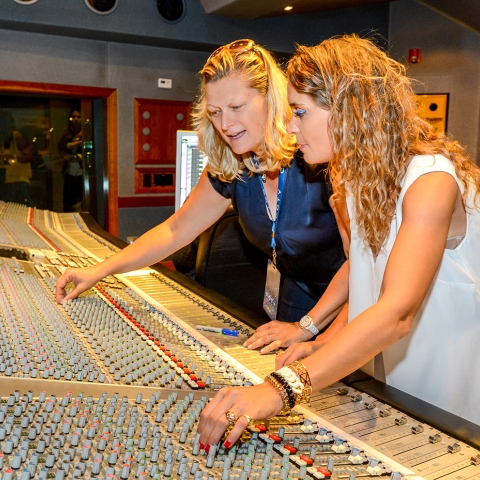Maximizing Opportunity Amidst a ‘Hurricane of Transformation,’ According to Valerie Bihet

Valerie Bihet’s more than 20 years of experience in the management, design and production of special events began with stints at Disneyland Paris in her native France and for Club Med, a job that brought her to the United States. Bihet founded her own event agency, Vibe, in Miami in 2004. Since then Vibe has produced more than 1,100 events throughout the United States, Europe, Mexico, East Asia and South America.
Usually producing 80-90 live events a year, Bihet and her team at Vibe have spent much of this year helping clients transition to virtual experiences. Here, Bihet discusses that transition and how event organizers can produce virtual events that stand out.
How did your own shift to producing virtual events come about?
In January, I was at CES in Las Vegas and a few of my clients from Asia were already talking about the pandemic. By March, as you know, everything was cancelled or postponed. My team and I immediately began doing benchmarks of digital event platforms. We also spent a lot of time checking in with clients.
By June and July — which is when my corporate clients start creating their marketing plans — I was telling them that virtual was not a trend and they needed to start creating virtual content if they wanted to keep their audience’s attention. We guided them through finding the best technology and creating a budget that would allow them to successfully transition to a virtual event that would engage and entertain audiences as effectively as their in-person events.
Can you share an example?
I have a number of clients in the cosmetics industry. A typical live event would involve flying attendees to a venue for a networking reception, followed by plenary and breakout sessions that educate attendees on their brand and products.
We talked to those clients about how to virtualize the concept. The events can actually be very similar. I would say 80 percent is the same with the other 20 percent involving a change in technology and method of engagement. We still need to offer quality content and speakers but, for instance, instead of booking a venue we find the appropriate digital platform.
We can be creative as well. If the client wants to offer something similar to the networking that happens when people mingle in the foyer outside a ballroom, we can open the sessions early to give attendees a chance to chat online before the speaker begins. And if the client is eager to provide attendees with a food-and-beverage component, we can have some delivered [to their homes].
What challenges should planners be aware of?
Certain things are more difficult to achieve virtually. It’s much easier to get speakers to be at ease on stage than it is focused on maintaining eye contact with the camera on their computer. There’s a reason people use teleprompters.
Also, at a live event the typical attention span drops after 20 minutes, whereas on virtual it’s more like 10 minutes. It’s important to add things like breaks, polls and surveys to keep the audience engaged.
Where do you see virtual events going in the future?
We are in the midst of a hurricane of transformation. It’s happening very fast, but the truth is that virtual events are outperforming live events in many ways. Looking ahead, virtual will serve as a complement to live events much more than before. Hybrid events are the next step.
Any advice you would give other event organizers during this transformation?
It’s important to be educated, aware, resilient and optimistic. Things are not going back to normal, so we need to adjust and adapt. It’s actually a huge opportunity because we can reinvent ourselves and do things differently and with more creativity.
Although it is a very challenging time, there are unprecedented event opportunities. We have to keep our spirits up and make sure we produce successful event experiences that keep the industry going.
Learn more about the live, virtual and hybrid experiences created by Bihet and her team at Vibe here.


Add new comment